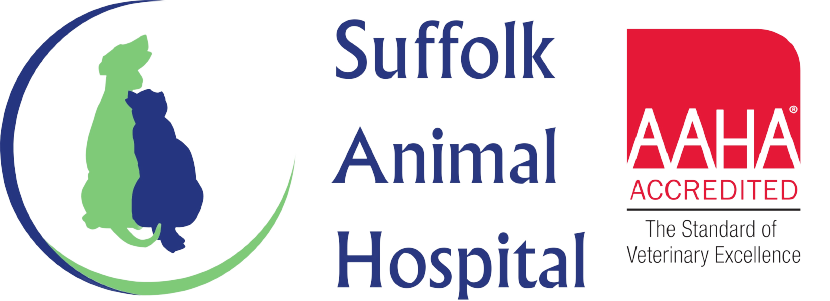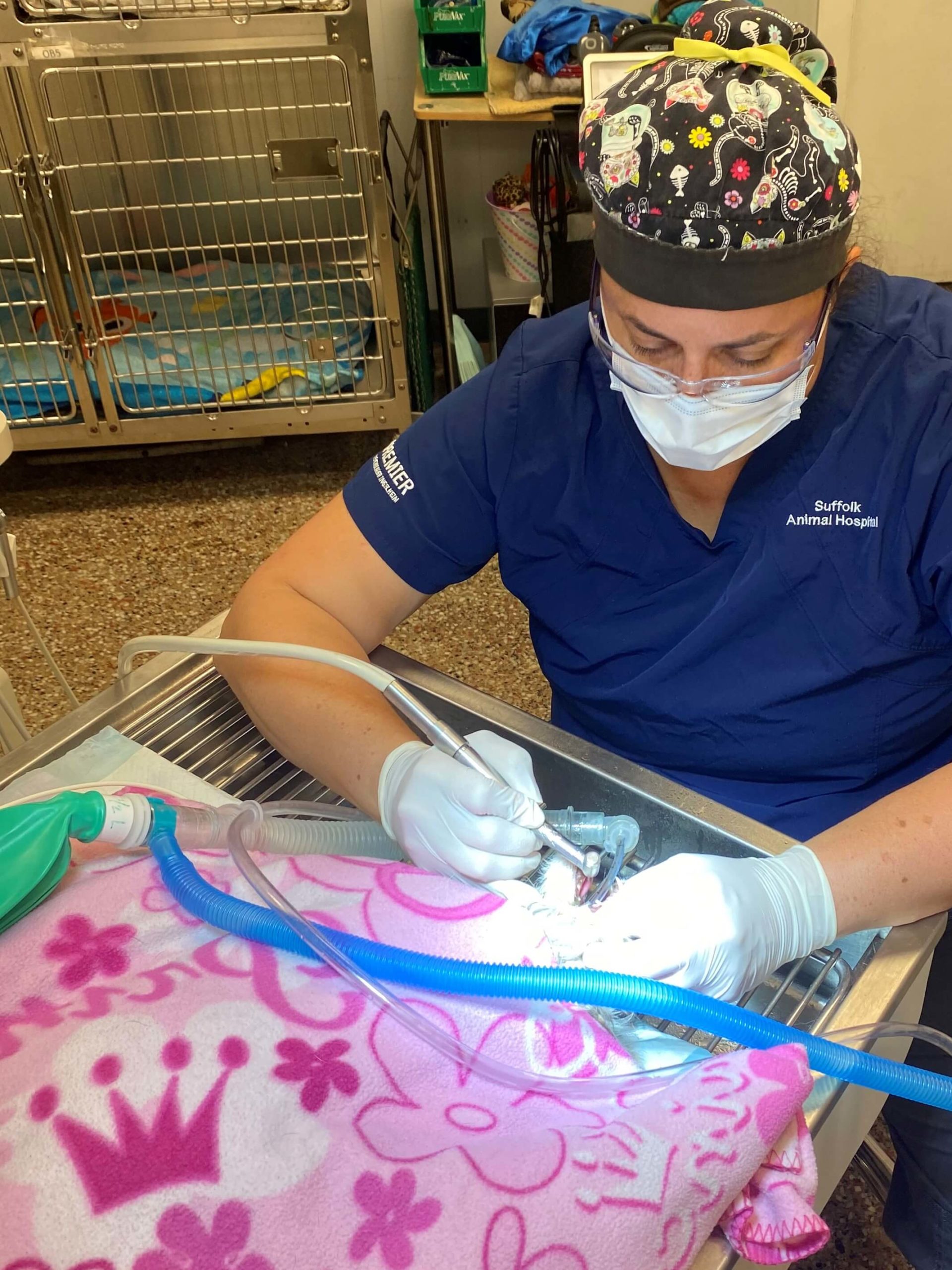Dental care is important for pets, too!
Your pet’s teeth need care just like your own. At Suffolk Animal Hospital, we take dental care very seriously. We are here to help you help your pet.
According to the American Veterinary Dental Society, 70% of adult cats and 80% of adult dogs show symptoms of oral disease by the age of three. Exceptionally bad breath, a brownish plaque at the base of the teeth, excessive drooling, sore or bleeding gums when eating or chewing, and decreased appetite can all be signs that a pet’s teeth require attention.
Oral and dental health is one of the most important aspects of your pet’s overall health. Annual dental cleanings and polishing are recommended (just like humans) and should start at an early age. Unfortunately, other than bad breath, there are often few signs of the disease process evident to the owner. Professional dental cleaning and periodontal therapy often comes too late to prevent extensive disease or to save teeth. As a result, periodontal disease is usually under-treated, may cause multiple problems in the oral cavity, and may be associated with damage to internal organs in some patients as they age. Untreated, periodontal disease can also cause tooth abscess, gum infections, and/or bone loss: all of which can be painful for your pet to experience and costly to manage. Studies in humans have linked periodontal disease to a variety of health problems, including poor control of diabetes mellitus and increased severity of diabetic complications. Additionally, it has been shown that diabetes is a risk factor for periodontal disease.
For routine dental care, we recommend annual dental exams and cleanings as needed. These exams are ideal for assessing your pet’s overall dental and oral health; with these exams (which can include X-rays), we take a comprehensive look at your pet’s teeth and gums to look for signs of cavities, gum disease, and other problems that need to be addressed. From there, we can make recommendations for further treatment that may include additional cleanings, antibiotic fillings, extractions, and sealants. We can perform most dental treatments right here in our office and are done under sedation or anesthesia to ensure that your pet is as comfortable as possible. If needed, we will also perform any pre-treatment blood work, which can help us determine that anesthesia is safe for your pet.
If you notice any bad breath, bleeding gums, changes in eating or chewing behavior, abnormal drooling, brownish-yellow crust on the teeth, tooth loss, or changes in behavior, please call us today to schedule an appointment with one of our veterinarians to evaluate your pet’s teeth!

